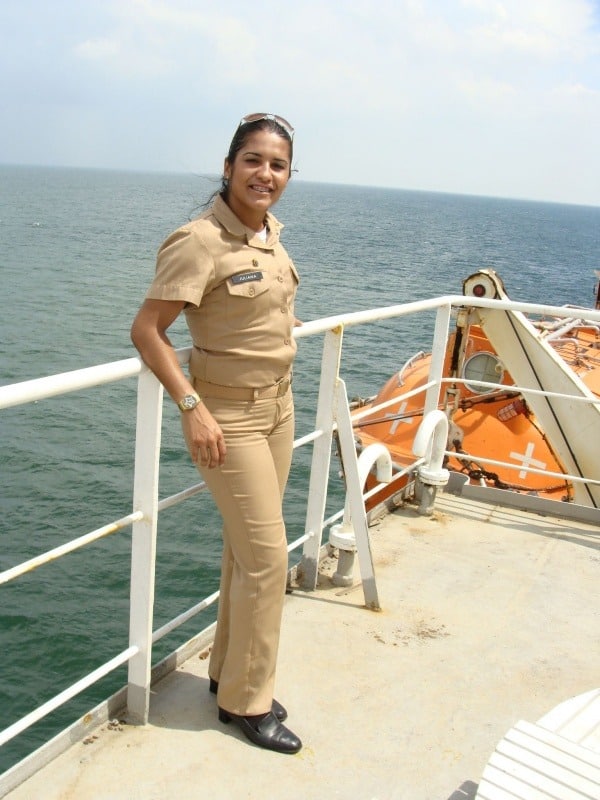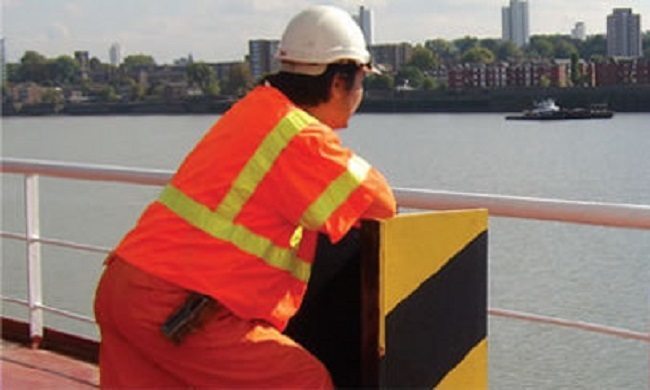When it comes to marine careers, getting promoted on board ships requires the same amount of hard work and persistence as that required in other professions.“Successful people do what unsuccessful people are unwilling to do.” The saying holds true for individuals who are persistent and remorseless at work.The career graph of successful people is ever climbing. Luck too, plays an important role in career advancement. Although everyone tries their best, only a few get through. Today, competitiveness is the buzz around and being noticed at work was never cited as important. Of course, this means being competent at work is just not enough; it also requires an optimistic and a direct approach.
‘Career progression’ within the maritime industry is no different. Turns out that even maritime professionals love their promotions and bettering their skill levels. The ritual of climbing higher in the maritime hierarchy is more often than not, tedious, for most. An ‘upgrade’ to most mariners relates to more “pay” and a psychological step up over their junior ranks. Some have the ascent smooth while others have it rutted. Needless to say, mariners always have to be motivated and throw away personal reflections while remaining adapted to their monotonous lives on board.
Sometimes an expected promotion for maritime jobs doesn’t come up along and one ends up cursing the profession, agitated! So, rather than loosing valuable time and mental health in trying to figure out what possibly could have gone wrong, culturing the appropriate way and improvising your efforts might dish out newer opportunities. Mentioned herein are nine successful techniques to get promoted on ships.
1. Become worthy – Building up worthiness at your place of work is the key to success. No one ever got promoted on ships without being commendable for the upgrade. Success is something one doesn’t get over on a silver platter. This is only possible if one carries out the existing maritime job responsibilities and duties effectively and efficiently. For e.g. a Second Engineer has to absorb and apply all the technical knowledge to be worthy enough to fit into the Chief Engineer’s role and likewise a Chief Officer has to be entirely in control to command over a ship.
2. Excelling at work – In order to stand out on ships, one must be dedicated to his/her work. Good organizations keep an eye on those who show keenness and commitment to their jobs giving first place results. Enthusiasm is good, but when it is coupled with one’s potential, results are excellent. For example, when a Second Officer, time after time, performs his navigational duties exceptionally, he someday is sure to get hold of his superior’s eye for a better outcome.
3. Staying up front and volunteering – To enhance credentials, be a volunteer at jobs on ships. It is always better to exchange your views and experiences that will make your job to be effectively carried out. The company management are always on look out for persons who can handle more responsibilities. To get into their good books, a fourth Engineer on ship for example, can always come up and assist the Third when the generators are being overhauled or look into more of Third Engineer’s duties likewise. But it is also vital that the Fourth Engineer doesn’t shirk away from his current duties.
4. Showcasing leadership – For maritime professionals aspiring to get higher ranks on board ship, it is imperative to highlight one’s strengths and showcase professional leadership qualities. Professionalism at workplace is crucial for one’s success. To get into the Captain’s seat, the Chief Officer has to exhibit abilities to lead and motivate the crew members. He also has to be a team player, respect subordinates, and seed new ideas. A ship’s captain’s profile is full of authority and responsibilities. The person hopeful to become one on ship has to fully merge himself into the role for becoming a responsible leader.
5. Building good interpersonal relations – It is very noteworthy to build up good personal relations with colleagues, subordinates and of course the superiors. Overall, a good professional image always plays a key role when the management is making decisions for a promotion on ships. This doesn’t mean that one always has to be a “Yes Master”. Mariners in general, are a shy group of people who usually keep to themselves. For an upgrade, avoiding people would do no good. Initially one can at least try and be involved in professional discussions like for example, having regular safety or work related meetings among the management or the even the subordinates before slowly catching up on being socially interactive. This might help in making you and others around you to be comfortable in professional as well as personal relationships.
6. Learn new things each day – Learn everyday! Life teaches us something that we never thought existed and that too constantly. One must always improve one’s personality and profile by learning newer things on board ships and to do so have the right aptitude. Be it a junior officer who is ready to take on whatever comes to get a level higher or an engineering officer who is ready to take on the next senior position, keeping one updated to the latest skills and techniques will only help in improving one’s proficiency.
7.Emphasize on your positive past – Experts say it is not erroneous to ring a bell in your superior’s ear of your positive happenings or successes in the past when it’s time to cite references for a promotion. Since maritime professionals stay together for a brief period of time unlike other professions, won’t you think it may be good to highlight the recent positive outcomes for a better appraisal? Tell your seniors on board ships about the past experiences you are proud of.
8. Being a self starter – One should try and recurrently surpass expectations on board ships by taking up professional challenges and turning them into positive and effective outcomes. Staying within an organisation and becoming a successful ‘achiever’ requires one to have the right attitude, dedication to work and a will to succeed.
9. The Tested Technique – Although good companies reward their efficient employees, they sometimes do so at a snail’s pace. Not surprisingly, mariners are known to frequently shift organisations for a promotion. Sometimes a fast track mode used for getting atop the shipboard hierarchy might not be better than a deserving, “long and hard earned battle” to reach the top. Finally, to this it’s you who has to decide whether jumping tracks appears more viable for getting an upgrade or earning it seems to be better off for getting promoted on board ships.
These are some of the tried and tested methods to climb the hierarchy level on ships. Are you aware of any other important ways to get a deserving position on board ships? If yes, please share it with others in the comments below.





